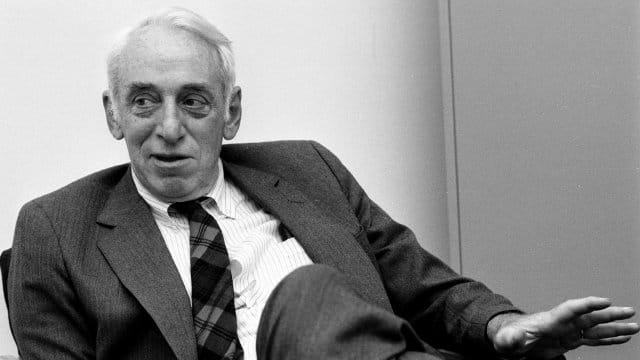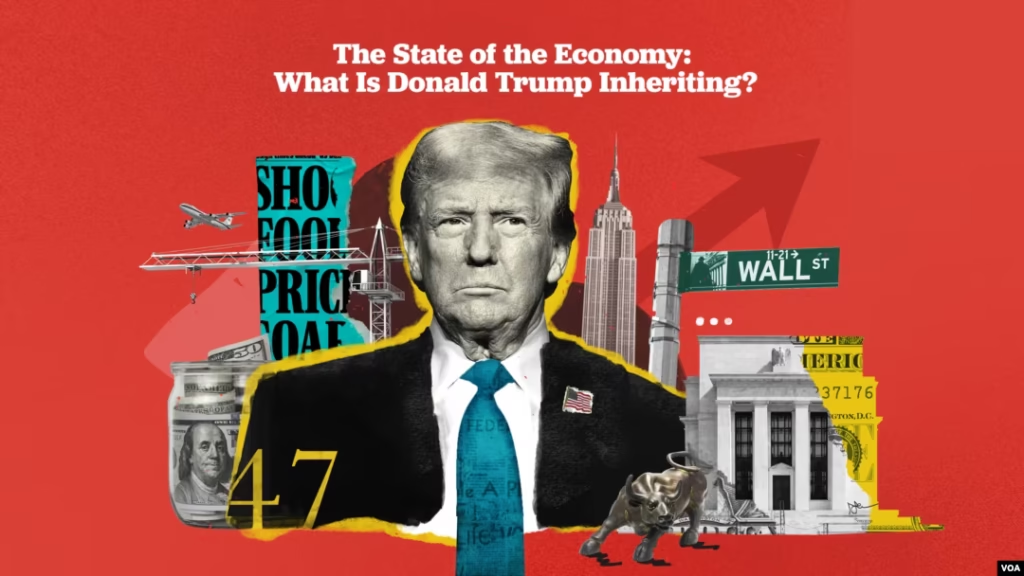Trump faces the monumental task of reducing deficit while boosting U.S. corporate competitiveness through a “Weaker Dollar.”
Trump’s got his work cut out for him—he’s trying to kill two birds with one stone (or maybe even three). Reduce the fiscal deficit? Sure. Weaken the dollar? Definitely. Boost U.S. business competitiveness? Why not throw that in too. Word on the street is he’s got a sneaky trick up his sleeve. Let’s break it down!
The Origin of a Timeless Investment Principle
1. If you’re an investor, you’ve likely heard the saying, “Don’t put all your eggs in one basket.”
2. This widely known phrase simply means: don’t go all-in on one investment. Instead, create a portfolio and diversify.
3. In 1981, the Nobel Prize Committee awarded the Nobel Memorial Prize in Economic Sciences to James Tobin (1918–2002), a Yale economics professor.
4. The committee cited Tobin’s contributions to Portfolio Theory as the reason for his selection.
5. When the announcement was made, reporters swarmed Yale University for a press conference with Tobin.
6. During the conference, a journalist asked him to explain Portfolio Theory in simple terms. Tobin’s reply?
“Don’t put all your eggs in one basket.”

7. The line made headlines in major newspapers the next day and soon became one of the most famous investment principles.
8. Interestingly, although Tobin earned all his degrees—bachelor’s, master’s, and Ph.D.—at Harvard, he spent his entire career teaching at Yale from 1950 until his death.
9. In the 1970s, Tobin proposed a specific tax that he believed was necessary.
10. This tax is called the Currency Transaction Tax (CTT).
11. Its purpose? To discourage speculative, short-term international capital flows by taxing them.
12. Since Tobin first introduced the concept, it has come to be known as the Tobin Tax.

The Debate on Capital Flow Freedom
13. There’s a long-standing debate about whether capital flows should be liberalized.
14. Supporters argue that liberalizing capital markets allows money to flow into underdeveloped countries, fostering investment and economic growth.
15. Opponents counter that unregulated capital flows can destabilize economies.
16. Economist Ragnar Nurske famously compared foreign capital to an umbrella, saying:
“Foreign capital is like an umbrella—it’s taken away as soon as it starts raining.”

17. In essence, foreign capital floods economies during good times but withdraws at the first sign of trouble, often exacerbating financial crises.
18. Kenneth Rogoff and Carmen Reinhart have studied the connection between capital market liberalization and financial crises.
19. Their research shows that every major financial crisis since 1800 coincided with periods of high capital mobility.
20. The takeaway? To prevent financial crises, capital flows must be regulated.
21. From the perspective of emerging markets, foreign capital is essential for economic growth.
22. However, overly strict regulations can limit the growth of capital-scarce countries, creating trade-offs.
23. To balance these factors, Tobin proposed “moderate regulation.”
24. As he famously said: “Throw a little sand in the wheels of an overly efficient global financial market. By imposing an appropriate tax, we can slow down capital flows to a manageable level.”

Case Study: Brazil’s Tobin Tax Experiment
25. In the 2000s, emerging markets experienced a rapid influx of foreign capital.
26. Brazil, with its strong economic growth and high interest rates, became a hotspot for foreign investors.
27. After the 2008 global financial crisis, quantitative easing (QE) in the U.S. and Europe further pushed capital into Brazil.
28. As foreign capital poured in, dollars became abundant in Brazil, while the Real (currency of Brazil) became scarce.
29. The result? Dollars became cheap, and the real strengthened to the point where exports became uncompetitive.

30. In 2009, Brazil implemented the Tobin Tax, starting with a 2% rate.
31. The rate was gradually increased to 6%.
32. In the short term, Brazil achieved its goals.
33. The Real (currency of Brazil) weakened, making exports more competitive, and the tax revenues boosted the country’s fiscal health.
34. But the policy came with a downside.
35. The tax didn’t just deter speculative capital—it also reduced long-term investment, stifling Brazil’s growth potential.
36. Foreign capital inflows to Brazil dropped dramatically: $63 billion in 2010, $35.3 billion in 2011, $8.8 billion in 2012.
37. Eventually, Brazil phased out the Tobin Tax, removing it entirely by 2013.

Trump and the Tobin Tax: Making the Connection
38. Now, you might wonder why we’re talking about the Tobin Tax in a post about Trump.
39. One of Trump’s campaign promises was to establish an External Revenue Service (ERS).
40. Trump stated: “On my first day in office, I will create an ERS to collect all revenues from foreign sources, including tariffs.”
41. The markets, however, focused mainly on his mention of tariffs.
42. But Steve Bannon, a key Trump adviser, suggested a broader agenda.
43. Bannon remarked: “America is the most profitable market in the world. We can’t let foreigners access it for free.”
44. In other words, the U.S. might start charging foreign investors an entry fee to access its markets.

45. If a Tobin Tax were implemented in the U.S., it could weaken the dollar, much like it did in Brazil.
46. Additionally, the revenue from the tax could help reduce the fiscal deficit.
47. Critics of Tobin Taxes often point to reduced long-term investment flows, but the U.S. might not face this problem.
48. Global investors are unlikely to abandon the U.S. market, even with an extra tax.
49. Tobin’s idea of slowing down financial markets “just enough” could work without major drawbacks in the U.S.
50. If a Tobin Tax were implemented, it could weaken the dollar while strengthening other currencies, such as the yen, euro, or pound.
51. For example, if we take the yen, a Tobin Tax could reduce the incentive for Japanese investors to purchase U.S. bonds and stocks.
52. A drop in U.S. investments would lower the demand for dollars, making the currency more abundant.
53. As the dollar becomes more common and cheaper, currencies like the yen, euro or pound would strengthen in comparison.

Alphazen Insights

Keep an eye on Trump’s early moves to see if the External Revenue Service is established. If the Tobin Tax is implemented, watch for its impact on exchange rates. Financial capital’s nature remains clear: it lends generously in sunny weather but snatches the umbrella at the first sign of rain.
Discover more from Alphazen Dynamics
Subscribe to get the latest posts sent to your email.



